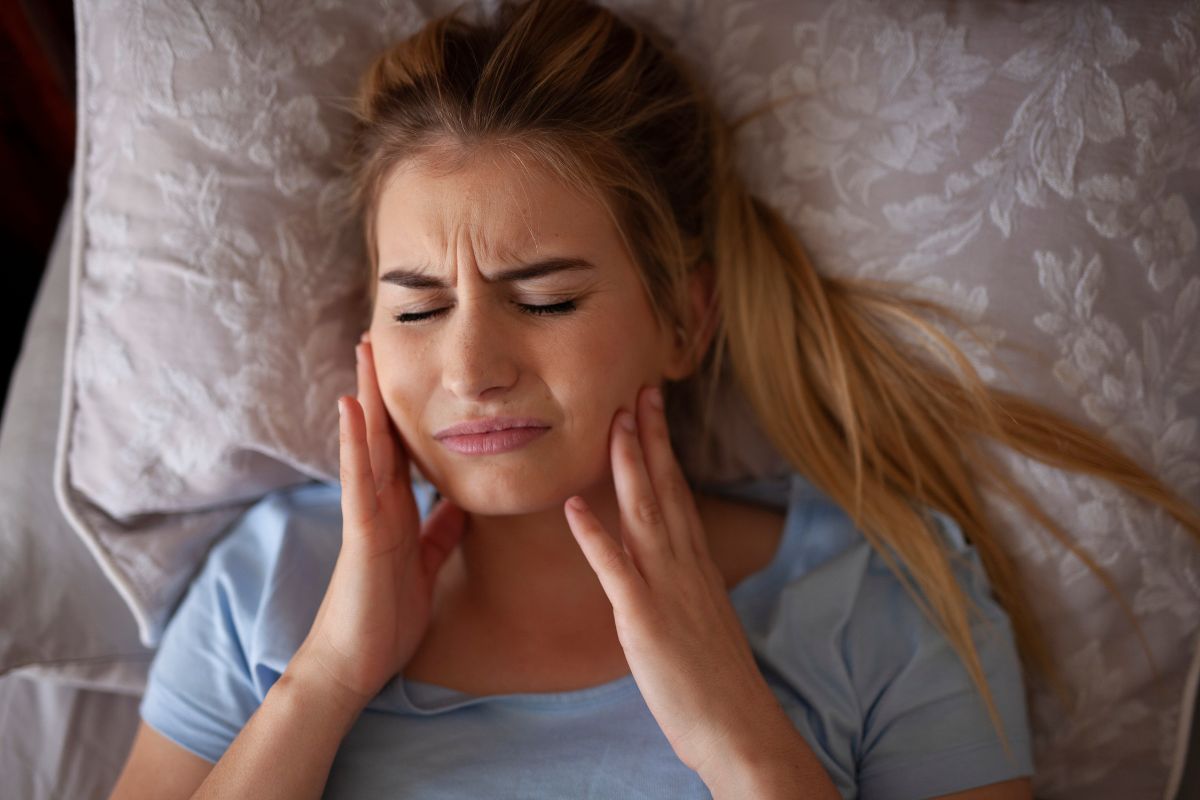
Is your snoring linked to nighttime teeth grinding? How an anti snoring device may help
If you wake up with a sore jaw, sensitive teeth or morning headaches after a night of loud snoring, you might be experiencing both snoring and teeth grinding. These two problems often go hand-in-hand and using the right anti snoring device could help reduce both issues, protecting your teeth whilst improving your sleep quality.
The link between snoring, jaw health and teeth grinding
At first glance, bruxism (teeth grinding) and snoring might seem unrelated. However, research suggests they’re often connected through breathing patterns and muscle tension linked to sleep apnoea. When your airway narrows at night, your body may subconsciously move your jaw to help restore airflow. These repeated jaw movements can contribute to both snoring and teeth grinding, leading over time to jaw stiffness, worn enamel and other oral health issues.
Using an anti snoring device may help by improving airflow and reducing the need for your body to make these unconscious jaw movements. By keeping your airway open, it supports both better breathing and less tension in the jaw — a win for your sleep and your smile.
How sleep apnoea can lead to teeth grinding
People with sleep apnoea are more likely to experience bruxism. Each time breathing pauses, the body briefly wakes to restore airflow, often tightening the jaw in the process. This can lead to loud snoring, poor-quality sleep and dental issues like chipped teeth or jaw discomfort.
If this sounds familiar, an anti snoring device could make a real difference. Unlike a standard dental guard that simply cushions your teeth, an anti snoring mouthpiece helps to address the root cause — restricted airflow. By holding your jaw forward, it keeps your airway open throughout the night, which may reduce both snoring and grinding episodes.
Why choose an anti snoring device?
For those dealing with loud snoring or mild-to-moderate sleep apnoea, an anti snoring device like the Snoreeze Oral Device can be an effective solution. This advanced anti snoring mouthpiece is designed to move the jaw slightly forward to prevent airway collapse, reducing snoring vibrations whilst supporting natural breathing.
As airflow improves, the body relaxes and jaw tension decreases — which could contribute to less snoring, less clenching and a more restful night for you (and your partner). The Snoreeze Oral Device is adjustable, discreet and clinically tested, making it ideal for those managing both snoring and teeth grinding without needing invasive treatment.
Easy ways to reduce snoring and teeth grinding
Even the best anti snoring device works ideally alongside healthy habits. Try these practical tips for better sleep and oral health:
- Avoid alcohol and caffeine before bed — both can relax throat muscles and worsen bruxism and snoring.
- Manage stress levels, as tension is a common trigger for teeth grinding.
- Sleep on your side to prevent airway blockage and relieve jaw pressure.
- Keep nasal passages clear with the Snoreeze Congestion Range, helping you breathe freely and reduce mouth breathing.
Protecting your teeth, jaw and sleep
Ignoring snoring and teeth grinding can do more harm than just disturb your sleep. Chronic bruxism can lead to long-term jaw health issues, whilst untreated sleep apnoea may affect your heart and overall well-being.
By using an anti snoring device like the Snoreeze Oral Device, you may be able to tackle both problems at their source in order to improve airflow, reduce tension and promote deeper, healthier sleep. Sometimes, the path to better sleep starts with protecting your smile.
Be sure to sign up for our newsletter to keep up to date with our latest products and insights.
